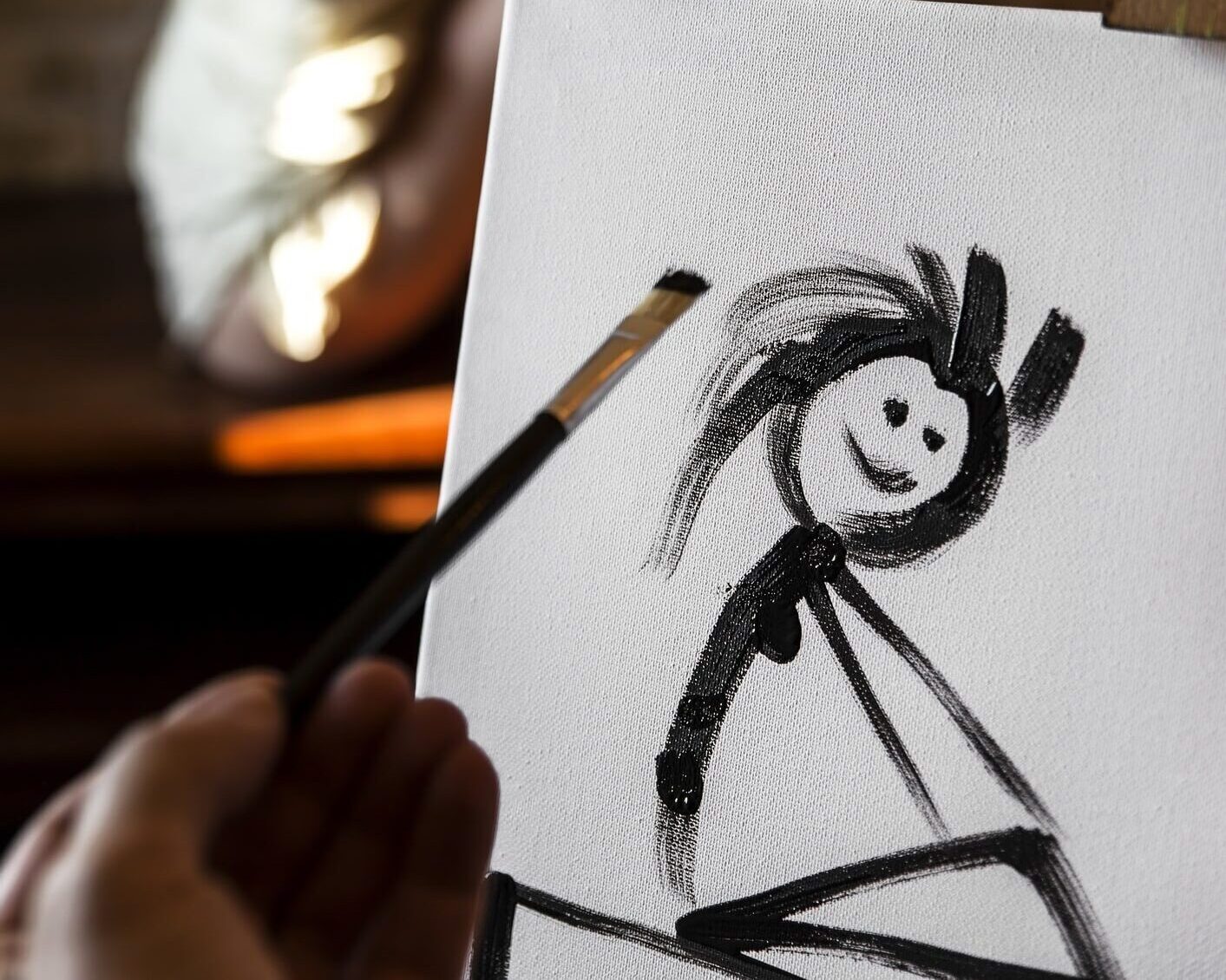The Abolition of Man, C.S. Lewis’s classic work of philosophy, packs a punch. Although his shortest book, it has had a huge impact since it first appeared in 1943, attracting the attention of everybody from conservative Catholic cardinals such as Joseph Ratzinger (the future Pope Benedict XVI) to liberal atheist philosophers such as John Gray. A powerful defense of the objectivity of value, it lays into many fashionable errors, knocking down intellectual targets, left, right, and center.
Or perhaps I should say “left and right,” for the center is what Lewis seeks to defend. And by the “center” I don’t just mean some bland neutrality between extremes. The center that Lewis defends is not arrived at by merely splitting the difference between opposites. It is not a Laodicean lukewarmness, that we might feel inclined to spit out, but something much more positive and nourishing. Let me explain.
Lewis pictures the human person—philosophically considered—as being made up of three parts: the head, the belly, and the chest. In the head we have rational thoughts. In the belly we have passionate appetites. In the chest we have the liaison officer between reason and passion. It is this middle element that is the distinctively human faculty. By our intellect we are mere spirit, and by our appetite we are mere animal, but by our chest we are truly human.
The argument that Lewis propounds could be summarized in the words of the epigraph to E.M. Forster’s novel Howards End: “Only connect.” Only connect the angel and the animal and you will have the anthropological. The human being is a synthesis of the human brain and the human belly in the human breast.
This philosophical chest joins those two parts of us that, while good in themselves, have a tendency to fly apart from each other and so become bad. Our reasonings are all too apt to evaporate into abstraction, floating upward into false spirituality, as if we weren’t also embodied, feeling creatures. Our feelings are all too apt to drag us downward into the overindulgence of some specially addictive sensual pleasure, as if we didn’t also enjoy the light of reason. The chest should check these two centrifugal forces, rooting them in an integrated heart.
Integration is the key word. Our cerebral self and our visceral self should not be chained together as a criminal is handcuffed to a cop. Rather, the head and the belly should bond like friends, even lovers. The boundaries between the two should dissolve so that we get the best of both worlds. We should be intelligently emotional and emotionally intelligent. The chest allows for the mixing and mingling of this treasure.
And what is true of reason and passion in the constitution of the human person is true in the realm of moral values, various examples of which Lewis lists in the appendix to Abolition. These, too, should go hand in hand.
I have a duty to parents and ancestors, yes. But I also have a duty to children and posterity. I need simultaneously to be looking backward and forward.
I have a duty of “special beneficence” toward those to whom I am indebted through ties of family, neighborhood, and shared citizenship. But I also have a duty of “general beneficence” toward all people, regardless of particular ties, because of common humanity. I need to look inward (to my tribe) and outward (to the world) at the same time.
Looking backward, forward, inward, and outward all at once can be dizzying, which is why people often short-circuit the process and make things easier for themselves by fixating on a single attitude, adopting it to the exclusion of that which it mirrors and balances.
For instance, it is good to practice special beneficence, but if you overemphasize it you enter the jungle of racism, nationalism, and ultimately a kind of ethno-theocracy. Likewise, it is good to practice general beneficence, but if you overemphasize it you end up in the deserts of elitism, individualism, and plutocracy (for only the rich can live permanently without local attachments).
Either way, you have erred against what Lewis calls the Tao, a term he borrows from Chinese philosophy, indicating the perennial “Way” of being human—the rich, complex tapestry of interwoven values that comprises ethical well-being. This Tao is our inheritance as morally sentient members of that primate species called homo sapiens to which we all belong. We are “sapient” insofar as we remain within this tradition of immemorial wisdom. If we try to invent a new moral code, we will fail. As Lewis writes:
There never has been, and never will be, a radically new judgement of value in the history of the world. What purport to be new systems or (as they now call them) ‘ideologies,’ all consist of fragments from the Tao itself, arbitrarily wrenched from their context in the whole and then swollen to madness in their isolation, yet still owing to the Tao and to it alone such validity as they possess. If my duty to my parents is a superstition, then so is my duty to posterity. If justice is a superstition, then so is my duty to my country or my race. If the pursuit of scientific knowledge is a real value, then so is conjugal fidelity. The rebellion of new ideologies against the Tao is a rebellion of the branches against the tree.
The phrase that sticks out to me from Lewis’s words here is the bit about moral fragments “arbitrarily wrenched from their context in the whole and then swollen to madness in their isolation.” This seems to encapsulate the current state of ethics and politics pretty well, at least in the United Kingdom and the United States, the two countries I know best. Contemporary discourse in these fields is not notably sane and balanced in either Britain or America right now. Yet we should remember that Lewis was writing during the Second World War, so it would appear that this ethical madness is hardly peculiar to our own times.
And of course it did not start during the Second World War either; it is a continual temptation. Lewis is only echoing what had been said a generation earlier by G.K. Chesterton, who wrote in Orthodoxy (1908): “The virtues have gone mad because they have been isolated from each other and are wandering alone.” Modern man, Chesterton avers, is all too often a modern maniac, living in the “the clean and well-lit prison of one idea.”
The imprisoning effect of having just one idea is something that Lewis dramatizes in The Silver Chair, the Narnia book he wrote to embody and express the qualities of the moon, as the moon was understood in medieval times. Luna, of course, brought about lunacy. Hence, the monomania of the Warden in the subterranean kingdom. He keeps repeating the mantra, “Many fall down to the Underworld, and few return to the sunlit lands.” The delightfully matter-of-fact Marsh-wiggle, Puddleglum, tells him: “You needn’t say it again. You are a chap of one idea, aren’t you?”
The problem with having only one idea is similar to the problem of having only one leg: it’s much harder to keep your balance. In Mere Christianity, Lewis points out how the devil loves to send “errors into the world in pairs—pairs of opposites. And he always encourages us to spend a lot of time thinking which is the worse. You see why, of course? He relies on your extra dislike of the one error to draw you gradually into the opposite one.”
You may, for instance, think individual freedom a mask for selfishness, and so you put all your weight on the public, the communal, the governmental, not noticing that you’re being drawn effectively into supporting authoritarianism. Alternatively, you may take the word government as a synonym for interference, and so you put all your weight on the private, the personal, the autonomous, not noticing that all the while you’re being drawn neatly into a Darwinian individualism.
To ask which is worse, the public or the private, the social or the individual, is like asking which of your two legs is worse. Or which lung. Or which eye. It’s a question the devil loves to pose. The devil is literally diabolus, the diabolical one, the one who desires only to throw things apart, to scatter and destroy. The guiding strategy of demonic warfare is “Divide and rule.” Divide one good thing from another good thing and—voilà—a bad thing!
Reason and passion are both good things and only remain good by being united in a third good thing, a passionate intellect that resides in the chest. Close your right eye and you see reality in one way. Close your left eye and you see it another way. Open both eyes and you see reality with depth perception. As Chesterton points out, the person who sees stereoscopically, “sees two different pictures at once and yet sees all the better for that.”
In the animal kingdom, the crustacean and the jellyfish represent two solutions to the problem of existence, as Lewis notes in his preface to The Pilgrim’s Regress. Being human, we have the happy privilege of living in the world less extremely than do those two sea creatures. Or rather, we have the privilege of being able to adopt either one of their two extremes, when warranted, and every point in between. Sometimes a moral exoskeleton is demanded. Sometimes it’s better to be invertebrate. We can move up and down the scale as occasion demands, but only if the two poles are securely yoked together by the humanizing chest.
We need not suppose, Lewis says, that greatness consists in colonizing a lonely extremity of some single line of development—“one either as pacific as Tolstoi or as military as Napoleon, either as clotted as Wagner or as angelic as Mozart.” To be truly great is to touch both extremities at once and to fill all that lies between them.
“Things fall apart; the centre cannot hold; / Mere anarchy is loosed upon the world.” Thus wrote W.B. Yeats in “The Second Coming,” a famously apocalyptic poem and widely regarded as a deft sketch of modern pathologies. What is less well known is that Yeats dabbled in magic and had an occultic fascination for the moon. Lewis met Yeats, his fellow Irishman, in Oxford in 1921 and reported, “He talks very well and not unlike his own printed prose: one sentence came almost directly out of ‘Per Amica Silentia Lunae’ … ‘ah yes – So-and-so: he went in for magic too, but his brain wasn’t strong enough and he went mad’—‘at that time I was going through what are known as Lunar meditations.’”
Yeats’s lunar obsession is (thankfully) unusual, but what is not unusual is wrenching one virtue arbitrarily from the Tao and expanding it to a manic degree in isolation from the rest. This is all too common and leads to a polarization in which the very idea of a strong and stable center has become hard to conceptualize.
The first step to conceptualization is imagining. So, imagine a thorax, integrating head and belly. Imagine a pelvis, anchoring both your right leg and your left. Picture a brain, combining into a single perception what you see through each eye. With these images in mind, we will have a better notion of what it means to be sapient members of homo sapiens and so avoid our own abolition.
Michael Ward is a fellow of Blackfriars Hall, University of Oxford, and professor of apologetics at Houston Baptist University. His latest book is After Humanity: A Guide to C.S. Lewis’s The Abolition of Man.














